More than ever before, there’s been a pronounced change in the public conversation surrounding mental health. No longer hidden away from family and friends, people are voicing their struggles and desires for change. One of the easier ways to fend off bouts of depression comes down to your diet. You are what you eat, right? From walnuts and salmon to bananas and dark chocolate, these are the best foods to enjoy for better mental health and wellness – plus a few not-so-healthy choices to scrap from your diet.
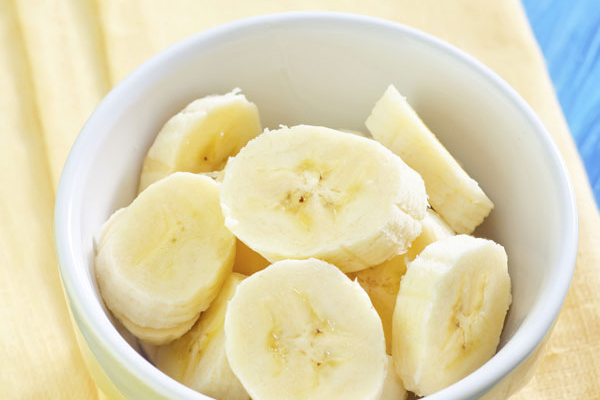
Best: Bananas
Although you won’t feel an immediate change in your mood after enjoying a banana for breakfast or an afternoon snack, this “mood food” plays a role in “topping up” the amount of serotonin (“feel-good” chemicals) the brain produces. Don’t let them go to waste, either. There are plenty of brilliant ways to use overripe bananas.
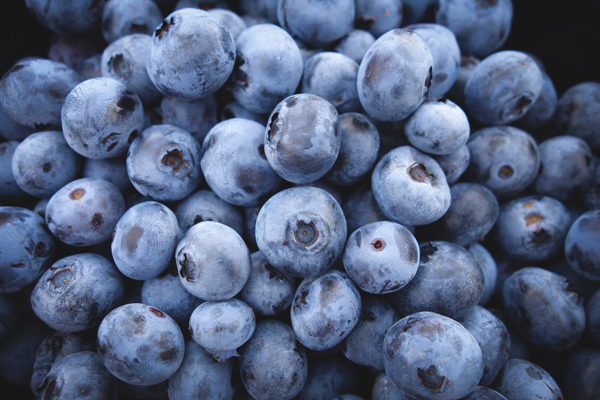
Best: Berries
While blackberries and strawberries certainly contain a slew of beneficial properties that can improve various brain functions, blueberries are the bee’s knees when it comes to boosting overall well-being. A 2016 study found that regularly consuming blueberries can help mitigate depression while increasing cognitive abilities. A true “mood food”, they can even reportedly leave you feeling more positive and energized within two hours of consumption.
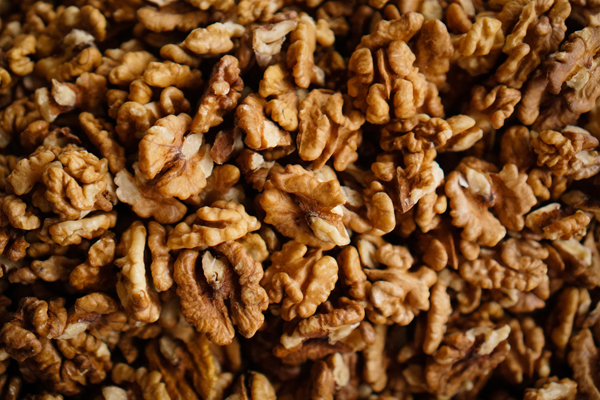
Best: Walnuts
If you’re feeling down, reach for a handful of crunchy walnuts for a quick pick-me-up. Research suggests that eating more walnuts is the secret to a happier state of mind, especially in young men. The top nut for brain health, they boast a high concentration of omega-3 fatty acids and are rich in antioxidants. Bonus: it’s relatively easy to introduce them into your everyday diet – add the nuts to smoothies, oatmeal, salad, stir-fries or trail mix.
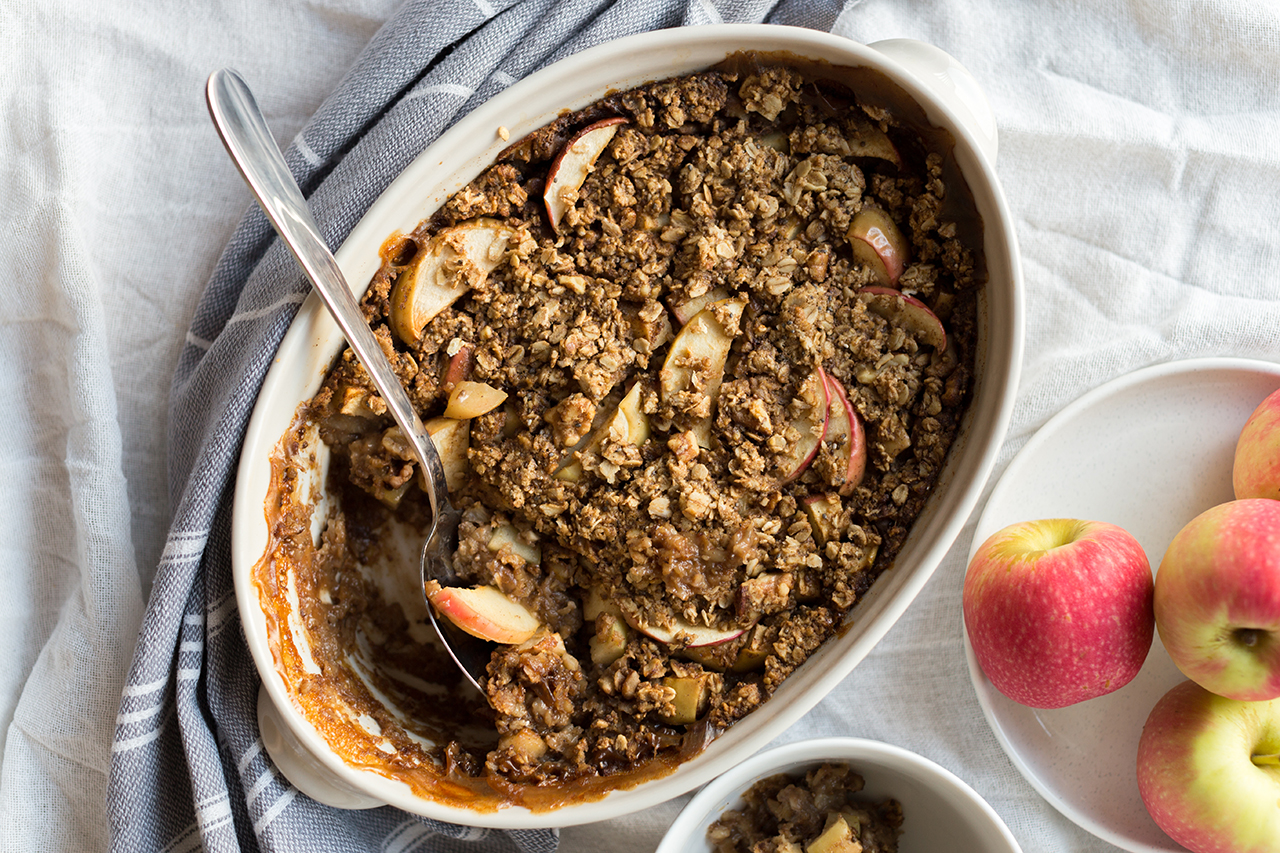
Best: Whole Grains
Who doesn’t love a “good carb”? Rife with an amino acid called tryptophan (which allows the body to produce high levels of the “feel-good hormone” serotonin), whole grains can help reduce depression and anxiety by relaxing the brain and improving your mood. And, thanks to its equally high production of melatonin, whole grains can also help you maintain a steady sleep cycle – resulting in a more fitful slumber and better emotional state. For some meal prep inspiration, try these whole-grain breakfasts that’ll keep you full until lunch.
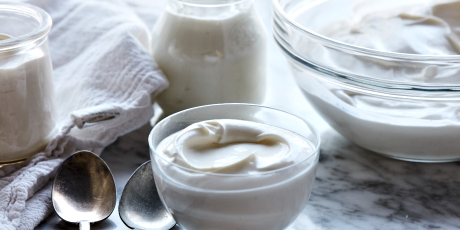
Best: Yogurt
Did you know that lactobacillus, a probiotic bacteria found in yogurt, directly impacts mental health by lowering levels of stress, anxiety and depression? Thanks to the gut-brain axis – a term for the network that connects the two parts – neurotransmitters are able to pass from one another freely while directly affecting your feelings and emotions. We have the term “gut-wrenching” for a reason. Depression, stress, anxiety and anger can all trigger a reaction in your gut. So, if you’re busy ingesting your favourite yogurt topped with berries and granola, your brain is notified that something good has entered your tummy.
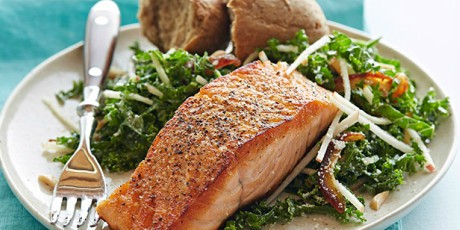
Best: Salmon, or Other Fatty Fish
In general, fish is always a healthy meal option – but salmon easily tops the list as the best of the best. This versatile “fatty” fish contains high amounts of vitamin D and omega-3 fatty acids, both of which have been directly linked to decreased levels of depression. Don’t have any salmon on hand for your next meal? For an equally significant boost of omega-3’s, opt for a recipe that includes tuna or herring instead.
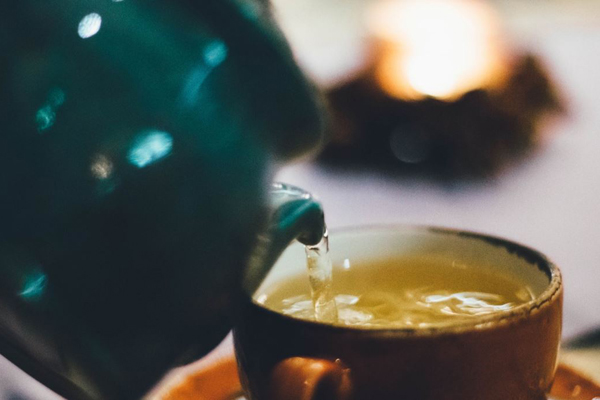
Best: Green Tea
Such as it is in nature, the colour green purportedly has a calming effect on the human mind. Which makes green tea, with its high levels of L-theanine – a naturally-occurring amino acid found in tea leaves – all the more important to drink when you’re feeling blue. This amino acid plays a significant mood-boosting role, specifically by increasing your brain’s dopamine levels (which affects your emotional responses) – so you’d better start brewing!
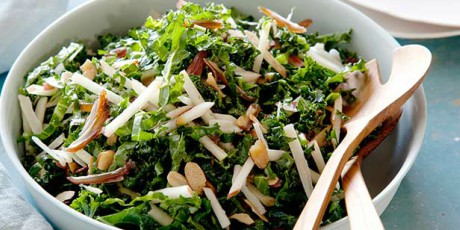
Best: Leafy Greens
Leafy greens, especially spinach and kale, provide the human brain with high levels of folic acid, which studies have shown plays a role in mitigating depression. And, considering how important a proper sleep is to one’s mental health, it also helps stave off insomnia. So, make like Popeye and eat more greens! Find some leafy inspiration with these hearty salads that will brighten your winter meals.
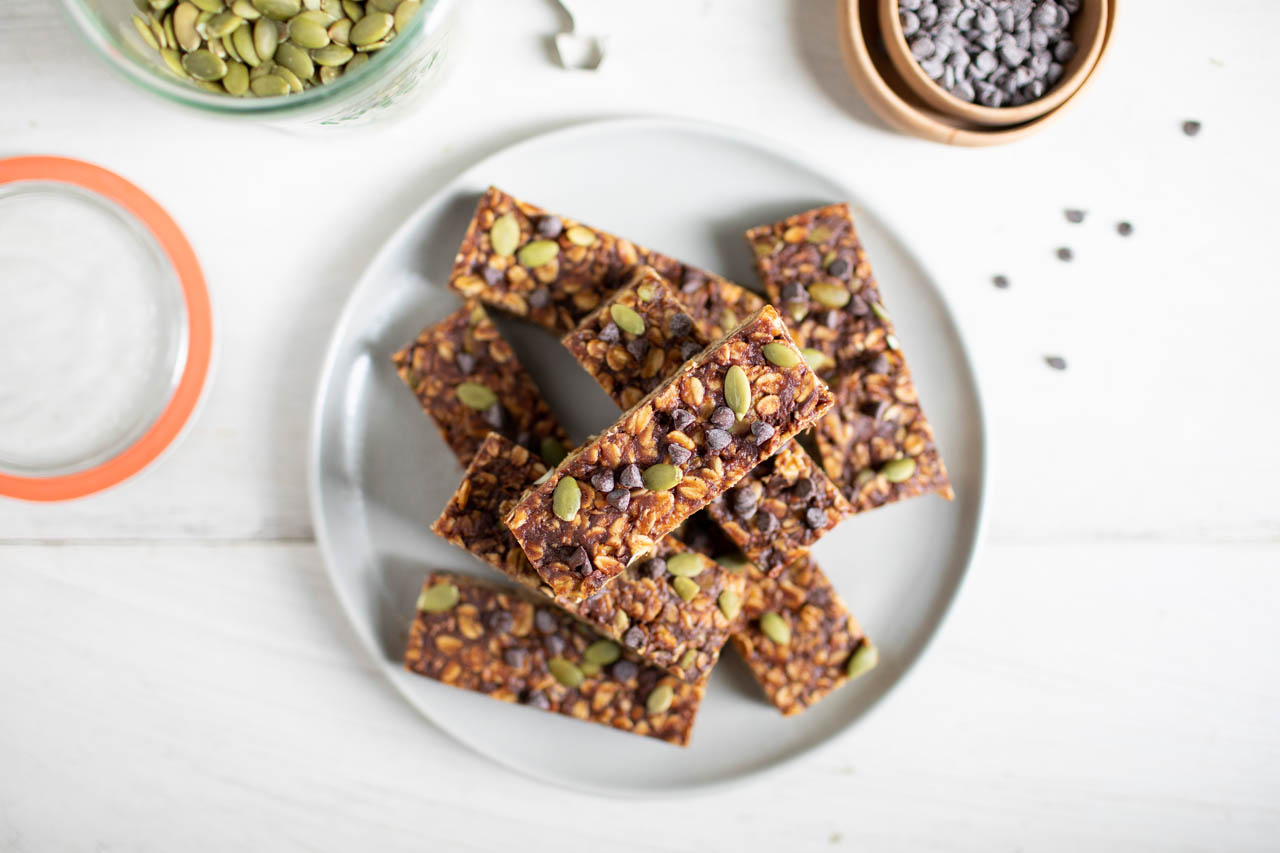
Best: Dark Chocolate
Those with a serious sweet tooth will rejoice at the news that indulging in dark chocolate is A-OK when it comes to boosting mental health and wellness. This treat makes the list due to its high cocoa content – something you won’t find in white or milk chocolate. Think really dark, too, with 85 per cent or higher being the most beneficial. Thanks to its high levels of the antioxidant flavanol, dark chocolate can enhance your mood and boost attention levels.
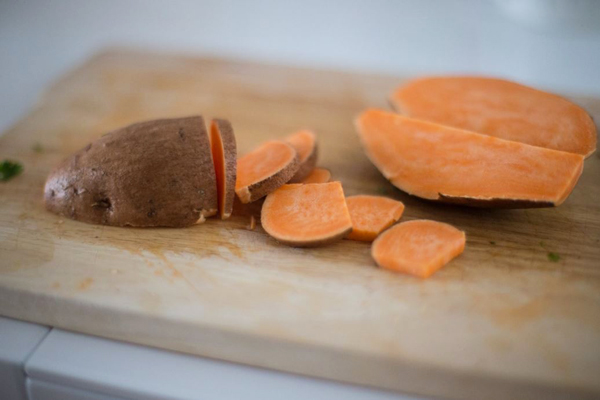
Best: Sweet Potatoes
Perhaps one of the more lesser-known foods on the list, sweet potatoes are rich in beta-carotene, an antioxidant that reduces brain cell damage – something that could have a direct effect on mental health and wellness. These mouth-watering sweet potato recipes might spark some inspiration and creativity in the kitchen the next time you’re meal prepping.
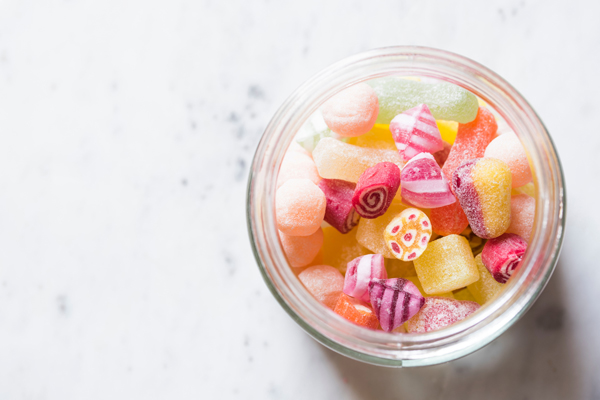
Worst: Sugar
News flash: sugar is not at all beneficial to your overall mental health. In fact, it’s a detriment to it. Not only can it inflict long-lasting damage to your body if you overindulge on a regular basis, but a so-called “sugar rush” can send your brain on an emotional journey and seriously affect your well-being. In a nutshell: sugar will only serve to inflame your depression and anxiety, so avoid at all costs. Find more bad eating habits experts say to ditch in 2020.
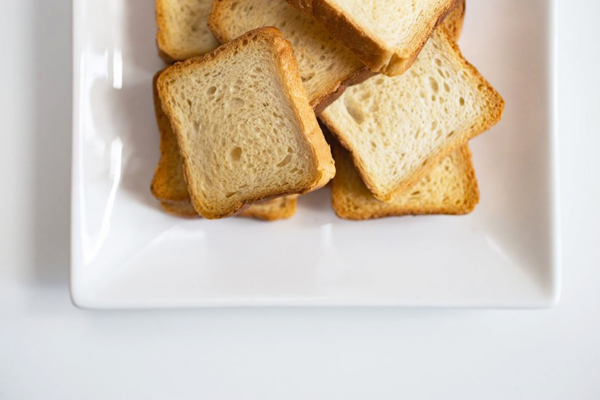
Worst: Bread
Refined white starches (think: white rice, crackers and white bread) can wreak havoc on your emotional state. We totally get it: when you’re sad, all you want to eat are carbs. But it can spike blood sugar levels and affect your mood in a big way, even if you previously didn’t have a history of mental health issues. Studies have shown that it’s best to avoid them for the betterment of your emotional state.
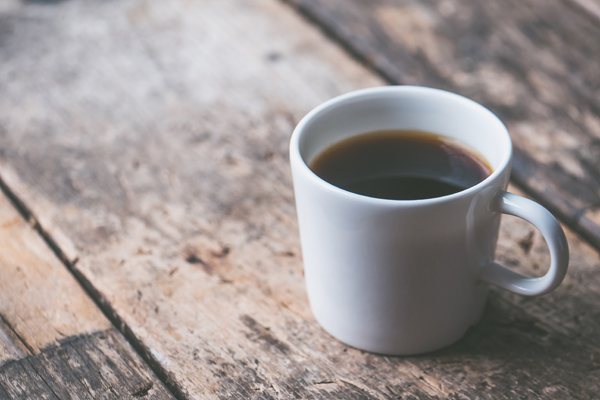
Worst: Caffeine
Although a low dose of caffeine can result in an improvement of overall mood (see: green tea), high intakes throughout the day can result in frayed nerves, anxiety and a serious case of the jitters. The good news: no one is telling you to quit coffee – but limiting yourself to one cup a day will work wonders on your emotional state.
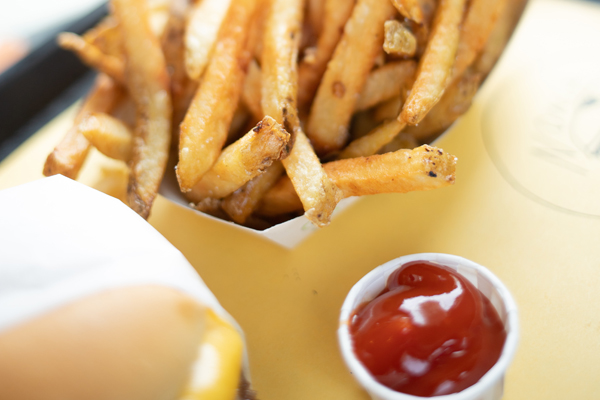
Worst: Fast Food or Fried Food
There’s definitely something to be said about the level of comfort we receive from indulging in a fast-food meal or fried dish, but in the end, it’s just not worth it – especially if we’re in a state of emotional turmoil. None of us needs artery-clogging trans fat – not only is it bad for the heart, but it’s detrimental to the mind.
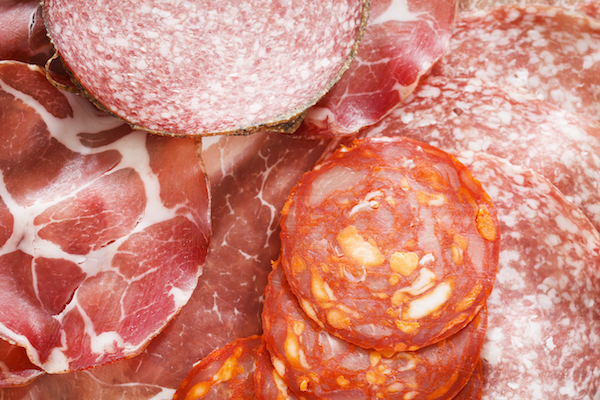
Worst: Processed Meats
It’s not just bad for your body, it’s potentially toxic for the mind as well. Salami, bacon, hot dogs, pastrami, you name it: they all contain high levels of the chemical nitrate – which is used to preserve them in those tightly sealed packages you buy them in. If that isn’t enough to turn you away from the salty food, consider a study that showed high levels of manic episodes in rats that were fed a steady diet of processed meats.
